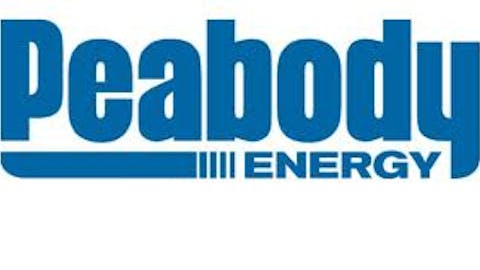Along with many other stocks in the coal industry, Alpha Natural Resources, Inc. (NYSE:ANR) has seen its stock price fall dramatically over the last couple years (it is currently down 87% from two years ago, and 56% in the last year). Alpha provides both steam and metallurgical coal, each of which has been encountering demand problems over this time. Steam coal, which composes about 80% of Alpha’s production volumes (though a lower share of revenues, since it sells at a lower price), is used to fuel power plants. Electric utilities have increased their emphasis on natural gas at the expense of coal as supply has been charged by the development of shale plays in the onshore U.S. An uncertain global macro situation has reduced steel demand (U.S. Steel has seen a similar decline in its stock price in the past 52 weeks); metallurgical coal is used in steel production, and has therefore experienced lower demand in turn.

Revenue decreased only slightly last year compared to 2011, though this was partly due to higher production as a result of the mid-2011 acquisition of Massey Energy (Q4 sales were 20% lower than in the same period of that year). Operating income ex restructuring and goodwill impairment charges was slightly negative for 2012, compared to slightly positive in the previous year. Cash flow from operations declined as well; while operations did bring in cash, the amount barely covered what Alpha Natural Resources, Inc. (NYSE:ANR) used on capital expenditures and acquisition of mineral rights. Wall Street analysts expect losses per share to be poor this year, before improving in 2014 (though the sell-side is unanimous in predicting losses for that year).
We track hedge funds’ quarterly 13F filings as part of our work developing investment strategies, including our finding that the most popular small cap stocks among hedge funds earn an average excess return of 18 percentage points per year, and can also use our database to track interest in Alpha Natural Resources, Inc. (NYSE:ANR) by individual managers. Billionaire John Paulson’s Paulson & Co. appears to be trying to “catch a falling knife” in Alpha, initiating a position of 6 million shares during the fourth quarter of 2012 (see Paulson’s stock picks). AQR Capital Management, a large hedge fund managed by Cliff Asness, increased its stake by 40% to a total of 5.7 million shares (check out more stocks Asness was buying).
Other coal companies include Arch Coal Inc (NYSE:ACI), CONSOL Energy Inc. (NYSE:CNX), Peabody Energy Corporation (NYSE:BTU), and Walter Energy, Inc. (NYSE:WLT). Arch Coal and Walter are closest to Alpha in terms of market cap- each has a market capitalization less than $2 billion- and along with the rest of the industry they have been struggling with profitability as well. These peers saw revenue fall between 25% and 35% in their most recent quarter compared to the same period in the previous year. Over 10% of the float at Arch Coal Inc (NYSE:ACI) and Walter is held short, which appears to be the case for Alpha Natural Resources, Inc. (NYSE:ANR) as well. We would note that analysts are actually calling for Walter to be profitable in 2014, with a forward P/E of 10.
CONSOL Energy Inc. (NYSE:CNX) and Peabody Energy Corporation (NYSE:BTU) are on somewhat firmer ground, and in fact CONSOL has “only” fallen 5% in the last year. Revenue at these two companies did decrease significantly in their most recent quarterly report, yet the decline compared to the fourth quarter of 2011 was closer to 10-15%. Peabody was profitable in terms of adjusted earnings numbers for 2012, and analyst consensus for 2014 implies a forward earnings multiple of 11. That figure- as well as Walter Energy, Inc. (NYSE:WLT)’s, obviously- would actually qualify the company for value status if it did hit its earnings targets. CONSOL currently carries trailing and forward P/Es of 18 and 15 respectively, suggesting that while it has taken less of a hit than other coal companies it also has less of an upside than the rest of the industry.
We certainly wouldn’t take sell-side forecasts at face value, but forward earnings estimates for some coal companies do look intriguing. Value investors might want to watch for any improvements in coal markets, and we would also wonder if there is any chance of industry consolidation which might help push up prices.
Disclosure: I own no shares of any stocks mentioned in this article.




